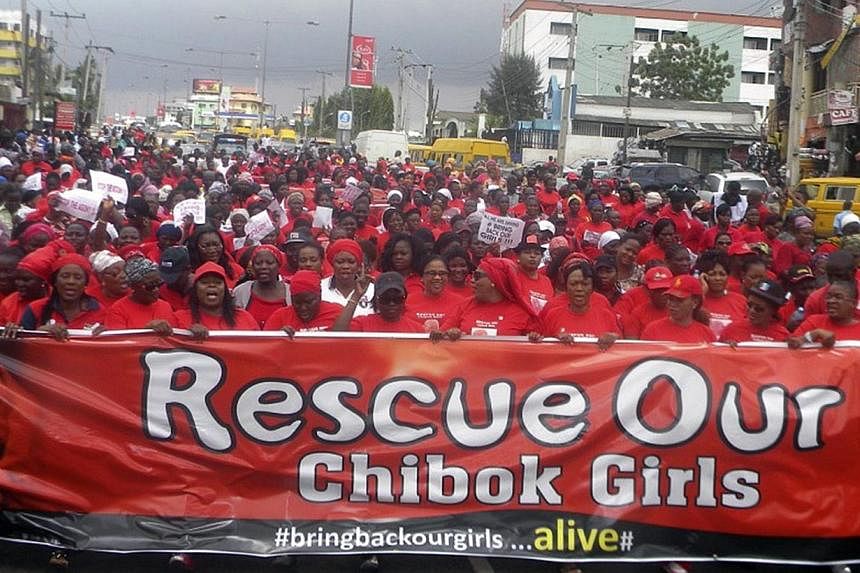ABUJA (AFP) - More than 200 schoolgirls on Wednesday began their second month as Boko Haram hostages, with Nigeria's government indicating it was willing to talk to the militants to secure their release.
Lawmakers in Abuja were also set to debate a request from President Goodluck Jonathan for a six-month extension to a state of emergency first imposed in three northeast states worst affected by insurgent violence exactly a year ago.
Boko Haram, which has waged an increasingly deadly campaign of bombings and attacks in the last five years, kidnapped 276 girls from the remote town of Chibok in Borno state on April 14.
Street protests, including in a torrential downpour in Nigeria's financial capital, Lagos, marked the one-month anniversary of the girls' abduction, calling for the 223 still being held to be returned to their families.
The United Nations expressed its "deep concern" about the fate of the teenagers.
The head of the Committee on the Elimination of Discrimination Against Women, Nicole Ameline, said the mass abduction violated UN conventions and "may qualify as a crime against humanity".
"The Committee urges Nigeria to employ all necessary means to obtain the release of the girls and to bring to justice the perpetrators of this heinous crime," she said in a statement.
On Monday, Boko Haram released a video purporting to show about 130 of them and claimed they had all converted to Islam. All of the girls were later identified as attending the school in Chibok.
The group's leader, Abubakar Shekau, suggested they could be freed in a prisoner exchange and on Tuesday, special duties minister Taminu Turaki indicated that the government was open to talks.
"Nigeria has always been willing to dialogue with the insurgents," Turaki, who last year headed a committee tasked with pursuing an amnesty pact with some of the group's fighters, told AFP.
"We are willing to carry that dialogue on any issue, including the girls' kidnap in Chibok, because certainly we are not going to say that (the abduction) is not an issue."
Jonathan and his government have been widely criticised for their slow response to the kidnapping.
But they were forced to react in the face of a growing social media campaign that has won wide support across the world and contributed to international pressure.
Specialist US, British, French and Israeli teams have been sent to help in the search operation, which Nigeria's military has said is concentrated on the Sambisa forest area of Borno state.
There are fears, though, that the girls may have been split into groups and taken into neighbouring Chad or Cameroon, from where Boko Haram has previously launched attacks and sought safe haven.

